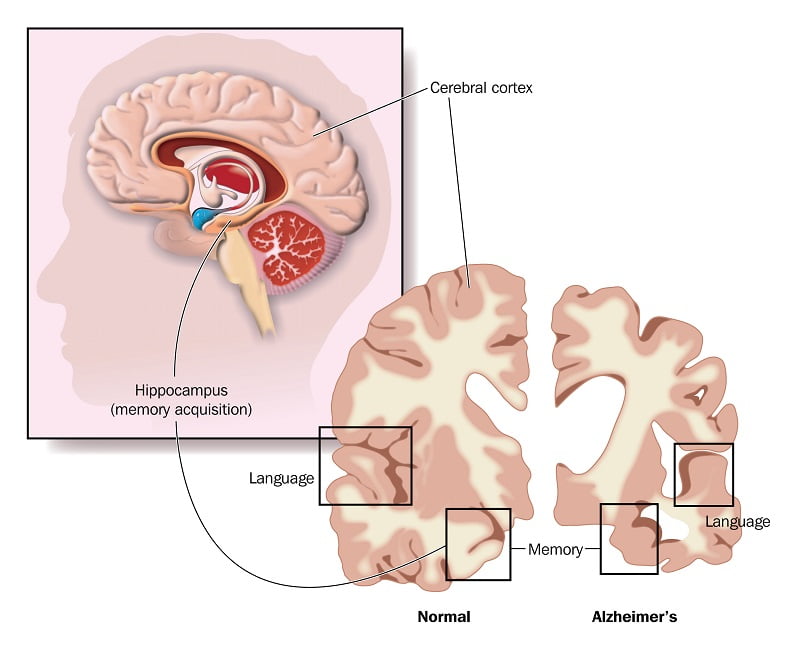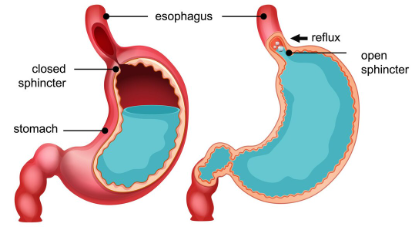Acid Reflux and Pregnancy
- Updated on: Nov 16, 2023
- 5 min Read
- Published on Nov 26, 2020

Most pregnant women experience heartburn and indigestion due to acid reflux. Acid reflux is very common during pregnancy due to the elevation of hormone levels. The feelings like discomfort due to heartburn may sometimes cause frustration in pregnant women. During pregnancy, most women experience acid reflux symptoms, usually in the second and third trimesters.
What Causes Acid Reflux During Pregnancy?
In a normal digestion process, the food travels down the esophagus (tube between the mouth and stomach) towards the stomach through a muscular valve-like structure called the lower esophageal sphincter (LES). The LES always remains open while swallowing and then get closed. However, during acid reflux, the LES becomes weak and therefore remains relaxed. As a result, the acidic contents within the stomach backflow into the esophageal lining. These acidic contents within the esophagus cause irritation in the esophageal lining resulting in heartburn and pain in the chest’s middle portion. Acid reflux is common during pregnancy due to the following reasons:
During pregnancy, there is an increase in the body’s hormonal levels, especially estrogen and progesterone. Increased levels of these hormones often affect the LES valve and keep it relaxed. As a result, the stomach acids backflow into the esophagus and cause heartburn. This usually occurs when you immediately lie down after having a heavy meal.
During the second and third trimester of pregnancy, the uterus gets expanded when the fetus is developing within the uterus. Expansion of the uterus creates pressure on the abdominal walls, which in turn relaxes the LES valve. Relaxation of the LES valve causes the backflow of stomach contents into the esophagus leading to heartburn and stomach pain.
Women usually gain excess weight after the second trimester of pregnancy. This is also one of the causes of acid reflux in pregnant women.
Diagnosis of Acid Reflux During Pregnancy?
Following are some of the symptoms that doctors usually consider for the diagnosis of acid reflux in pregnancy:
- Heartburn
- Pain in the middle or underneath the breast bone
- Nausea
- Vomiting
- Burping
- Regurgitation
- Indigestion
- Sore throat or cough
- Sour or bitter taste in the mouth
- Difficulty in swallowing
Besides the symptoms mentioned above, a procedure called endoscopy can also be diagnosed with acid reflux symptoms. However, endoscopy is not usually preferred in pregnant women. The endoscopic procedure is suggested only if the reflux symptoms persist after medications and lifestyle modifications. Besides, symptoms like dysphagia (difficulty in swallowing) and hematemesis (vomiting with blood) may also lead to the endoscopic procedure.
Read About Posture Effects on Your GERD Symptoms
How to Prevent the Symptoms of Acid Reflux During Pregnancy?
For preventing the symptoms of acid reflux in women during pregnancy, the doctors usually prescribe some medications. Since the pregnancy is sensitive, the doctors generally prescribe medicines that are easy to absorb and do not have any systemic effects. Following are some of the medications suggested by doctors during pregnancy for treating acid reflux symptoms:
Antacids
Antacids are the first choice of medicine for acid reflux during pregnancy and are usually prescribed to patients who do not get relief from the reflux symptoms after changing their diet and lifestyle. Antacids have the following benefits:
- They provide relief from mild symptoms of acid reflux.
- The antacids, along with alginic acid, form a protective layer over the stomach and neutralize the existing acid. They also prevent the irritation caused by the acidic contents in the esophagus after reflux.
- A recommended dose of almost 15-30 ml of antacids after a meal and before sleeping is beneficial for preventing the reflux symptoms.
Although antacids are beneficial for preventing acid reflux, they should not be used in high doses and for a long duration, especially during the pregnancy, due to the following reasons:
- Antacids contain a substance called magnesium trisilicate, which can lead to contractions during pregnancy, especially in the third trimester, and therefore should be avoided.
- A component of acids is sodium bicarbonate, which may cause hypertension and edema during pregnancy.
- Some antacid components like aluminum carbonate or aluminum hydroxide may cause constipation during pregnancy.
Sucralfate
Sucralfate is an aluminum salt that acts against the acid reflux by inhibiting the pepsin activity. It seems to be very safe because the digestive tract does not absorb it. It forms a protective coating in the esophagus and stomach and thereby protects it against the irritation caused by acid reflux. This medicine can be taken orally with a dosage of 1 gram three times a day. This antacid syrup can be more effective when dietary modifications are also considered. As far as the safety is concerned, no fetal or maternal side effects of this medicine have been observed.
H2 Receptor Blockers
These medications are useful for preventing excess acid production within the stomach. Some of the commonly prescribed H2 blockers against acid reflux during pregnancy are ranitidine, famotidine, and nizatidine.
Proton-Pump Inhibitors (PPIs)
Proton pump inhibitors are the most effective medications against the symptoms of acid reflux and esophagitis reflux. However, the prolonged use of PPIs may lead to some side effects like vitamin B12 and calcium deficiency. PPIs have a low risk during pregnancy. Some of the commonly prescribed PPIs are:
- Prilosec (Omeprazole)
- Nexium(esomeprazole)
Some of the herbal remedies are also useful for the treatment of acid reflux during pregnancy. These are:
- Ginger
- Fenugreek
- Green tea
- Valerian
- Quince sauce
- Olibanum
What Measures Should Be Taken for Preventing the Acid Reflux During Pregnancy?
There are certain things that you can do to avoid acid reflux symptoms during pregnancy. Making some lifestyle changes and dietary recommendations can work well against the reflux symptoms during pregnancy. Following are some of the measures that can be taken by pregnant women against acid reflux symptoms:
- Avoid high spicy foods and unhealthy foods.
- Go for high nutrient foods that will be beneficial for both the mother and the baby. Some of these foods are bananas, baked potatoes, broccoli, carrots, green beans, oat, rice, apples, bananas, egg whites, and fresh salad.
- If you are suffering from acid reflux, consider sleeping towards the left side with the head in an elevated position. This prevents the LES from getting relaxed and therefore prevents the acid reflux symptoms.
- Stop eating large meals, instead eat small meals after every 3 hours.
- Eat slowly with thorough chewing to be easily digested and do not produce excess acid in the stomach.
- Avoid foods that are oily and spicy as they may irritate the stomach and esophageal lining.
- Avoid drinking cold drinks, high caffeine drinks like coffee, and carbonated drinks as they may increase the level of acid in your stomach.
- Avoid wearing tight-fitting clothes. Tight-fitting clothes create an abdominal pressure that disrupts the normal functioning of LES and results in acid reflux. Besides, tight clothing may also cause contractions during pregnancy.
- Avoid smoking as it may lead to indigestion. Also, quit smoking because it may cause many pregnancy complications such as premature birth, low weight baby, etc.
- Do not drink alcohol during pregnancy as it may affect your digestive process and may also lead to lifelong complications in your baby.
- Consider going for yoga and meditation during pregnancy, as it may improve your digestion process. Consult your doctor before going for yoga as all the yoga positions may not be safe during pregnancy.
FAQs
What Can You Take for Acid Reflux When Pregnant?
You can ask your doctor for medication treatment. You doctor will more likely recommend you over-the-counter medicines such as rantidine, omeprazole, nizatidine and ezemprazole. The doctor may also suggest antacids in combination with alginic acid. Long term use of these medicines should be avoided because it can cause some harmful effects like contractions and constipation.
Is Acidity Common in Pregnancy?
Yes, acidity is common in pregnancy. The acidity occurs due to frequent episodes of acid reflux which led to develop heartburning, pain in chest and nausea. The elevated levels of hormones like progesterone and estrogen makes the lower esophageal sphincter valve to relax, as a result of which the stomach acid content moves upward in the esophagus. This process led to develop acid reflux symptoms.
How Can I Stop Acid Reflux During Pregnancy?
You can stop acid reflux by following some changes in diet and lifestyle. The measures that you can take to rule out your acid reflux in pregnancy are:
- Eat in small meals rather than large meals
- Avoid drinking water just after eating
- Slide your sleeping position on left side
- Avoid spicy food, dairy products, oily food, fish, meat and tomato containing products.
- Quit smoking and alcohol
When Should You See a Doctor for Acid Reflux During Pregnancy?
If you observed that even after following healthy diet and lifestyle habits doesn’t prove beneficial and you are still experiencing symptoms of acid refluxes, it’s a high time to consult a doctor. The symptoms which you can observe may involve severe heartburn, difficulty in swallowing; chest pain, coughing, and sometimes you may get black stools.












